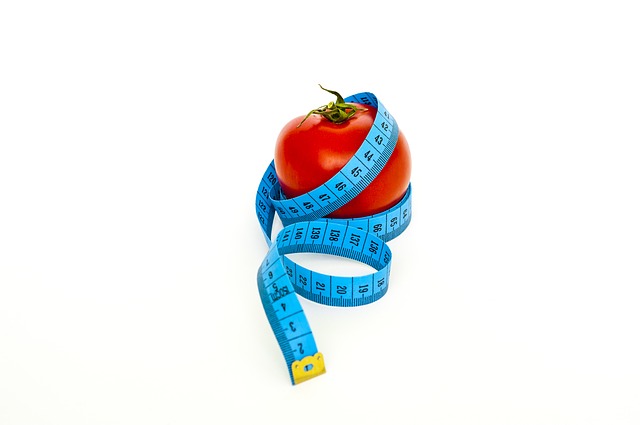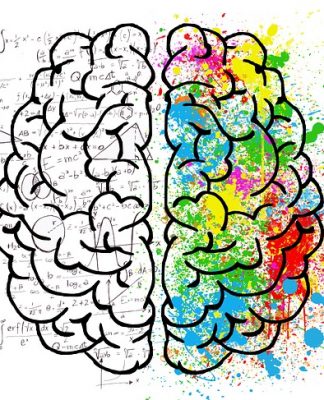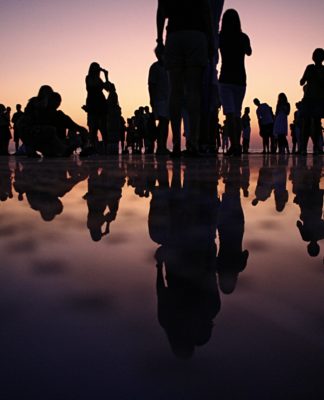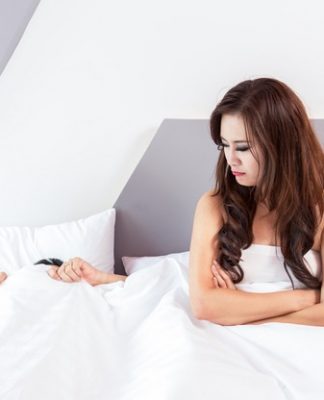Most people who read my blog know how I feel about dieting. I’m not a fan, to put it mildly. Diets don’t work. They cause people to gain more weight in the long run. They undermine our ability to think critically, causing us to disconnect from our real source of knowledge and power – ourselves. And the diet-obsessed culture we live in is robbing us (men and women) of our ability to feel okay in our bodies as they grow and change throughout our lives.
But there is another aspect of dieting that doesn’t get talked about as often. It’s a dark underbelly – a silent side effect of dieting – that is as harmful (if not potentially more harmful) than all of the above, and that is, diets breed shame.
Brene Brown, a well-known shame researcher, says this about shame:
“Shame is the most powerful emotion. It is the fear that we are not good enough.”
Dieting, as we tend to understand it, is predicated around the idea that something is wrong and needs to be fixed. It is built on the “Not Good Enough” belief – and depends on it to survive. From this “Not Good Enough” belief, we are sucked right into the shame cycle before we even realize what is going on. The next thing we know, we aren’t really being authentic, because dieting causes us to live a lie.
I remember when I was in high school, at the peak of my most disordered eating. I was so obsessed with rigid dieting, that I was literally hungry all the time. There was a day that I remember well, when I played hooky from school, just so I could stay home and order pizza. I ordered a large pizza and ate the whole thing. I was that hungry, and that desperate.
On the outside I looked like the all American high school girl (wearing Doc Marten boots – but, hey, it was the early 90’s). On the inside, my dieting and food obsession was preventing me from really living. It was a prison, and shame was my warden.
The point is, we never – EVER – tell the truth about what our diets do to us. We all walk around admitting only to the “good” days. We look at each other, envying one another’s highlight reel, unaware of the truth of who we all really are.
Yes, we have a good laugh at movies like Bridget Jones (a personal favorite, by the way), and the rom-com genre films that crack a good joke about the diet/binge cycle. Yes, we make sarcastic comments with our girlfriends about how it sucks to constantly have the food police (ourselves) watching over our shoulders. We smile through the frustration. We laugh instead of cry.
But no one caught up in a yo-yo diet cycle is laughing on the inside – because it isn’t funny or fun.
No one is really talking about the pain involved. It’s not socially acceptable to start a casual conversation with, “Did I ever tell you about the time I ate a whole pizza?”
The shame keeps us trapped in isolation. It keeps us trapped in the cycle. We are so afraid that if we admit the truth about how we really feel, the rest of the world will reject us, and see us as not good enough – oh, wait, wasn’t that the problem in the first place?
I firmly believe that as women, we need to start having conversations about what it is really like to be dieting all the time. We need to be talking about what it is like to see a world where women are being told overtly and covertly that we should be dieting. We need to admit the truth of what it’s like to be raised in a culture where dieting is the social norm.
The more we come together to start changing the dialogue, the more we can add to the collective consciousness about what it means to be women in our world. We can help one another break free from the brainwashing and begin to heal from the damage that’s already done. We can gather together in the hope that maybe today’s young girls won’t grow up believing they have something “wrong” with them, and that they need to fix it by altering their bodies.
Brene Brown also has this to say about shame:
“Owning our story can be hard but not nearly as difficult as spending our lives running from it. Embracing our vulnerabilities is risky but not nearly as dangerous as giving up on love and belonging and joy—the experiences that make us the most vulnerable. Only when we are brave enough to explore the darkness will we discover the infinite power of our light.”
Change really does start with each of us.


 Rebecca started her private practice in 2006 and specializes in working with women who want to heal disordered eating, emotional eating and negative body image issues. She also works with individuals around issues that are commonly present with disordered eating, such as depression, anxiety, OCD, phobias, addiction, codependency, and self esteem concerns. Rebecca has extensive experience in hospital and outpatient settings, addressing a variety of mental health issues, namely eating disorder issues, and gained invaluable experience in helping people heal their relationship with food.
She has also worked as a health coach in a medical setting, collaborating with clinical dietitians and physicians to offer an integrated approach to weight loss, nutrition and disease prevention.
In 2015, she cofounded CHI - Creative Health Initiatives - A Center For Mind + Body Wisdom. CHI provides women in transition and recovery, and those seeking a deeper connection with their spirit, therapy groups and self development programs both in their center in Atlanta and online. For more information, visit www.creativehealthinitiatives.com.
As a writer and speaker and advocate for eating disorder recovery, she has been spotlighted on The National Eating Disorder Association’s Blog roll, Voice In Recovery, Nourish-The-Soul, Wise Wild Feminine Radio, Connecticut Working Mom’s Blog, and Prescription For Life Talk Show In Atlanta, GA. Her blog, Life Beyond The Diet (http://lifebeyondthediet.com/blog/), focuses on inspiring and teaching women how to stop dieting, break free from body image and food obsession, and start living the life they are secretly dreaming about.
Rebecca started her private practice in 2006 and specializes in working with women who want to heal disordered eating, emotional eating and negative body image issues. She also works with individuals around issues that are commonly present with disordered eating, such as depression, anxiety, OCD, phobias, addiction, codependency, and self esteem concerns. Rebecca has extensive experience in hospital and outpatient settings, addressing a variety of mental health issues, namely eating disorder issues, and gained invaluable experience in helping people heal their relationship with food.
She has also worked as a health coach in a medical setting, collaborating with clinical dietitians and physicians to offer an integrated approach to weight loss, nutrition and disease prevention.
In 2015, she cofounded CHI - Creative Health Initiatives - A Center For Mind + Body Wisdom. CHI provides women in transition and recovery, and those seeking a deeper connection with their spirit, therapy groups and self development programs both in their center in Atlanta and online. For more information, visit www.creativehealthinitiatives.com.
As a writer and speaker and advocate for eating disorder recovery, she has been spotlighted on The National Eating Disorder Association’s Blog roll, Voice In Recovery, Nourish-The-Soul, Wise Wild Feminine Radio, Connecticut Working Mom’s Blog, and Prescription For Life Talk Show In Atlanta, GA. Her blog, Life Beyond The Diet (http://lifebeyondthediet.com/blog/), focuses on inspiring and teaching women how to stop dieting, break free from body image and food obsession, and start living the life they are secretly dreaming about.


















